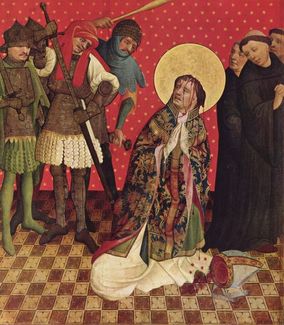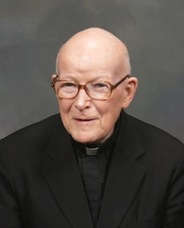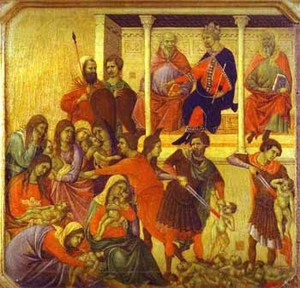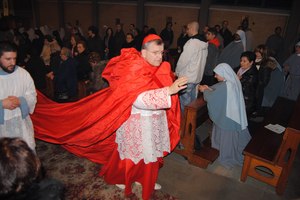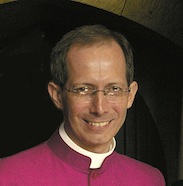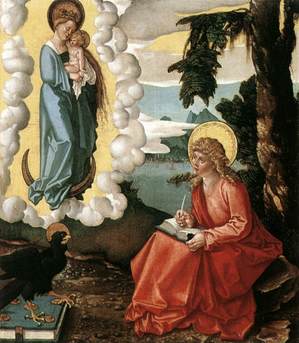CNS is reporting that the Pope will publish a set of documents against greed and financial improprieties. The Pope is responding to all types of financial/economic/legal questions and problems that the Church and her faithful face today. The Holy See has faced some strange politics regarding the use of money viz. the Italian state. It is a safe bet that what is likely to be said by His Holiness ought to be reflected upon by all peoples in the financial markets, especially in the parishes. Bishops and pastors have had done some naughty things with the Church’s money in the past and that needs to be rectified now.
Saint Thomas Becket
King Saint David, prophet
Today is the feast of King David, the revered Old Testament king and prophet. The Orthodox Church remembers King David on December 26th. The Latin Church, however, does not typically commemorate David as a saint on the universal calendar but he is listed in the Roman Martyrology (2005). It is the Eastern Church that recalls and commemorates more seriously King David in the Liturgy than the Latin Liturgy does. In any event, the Roman Martyrology says:
Commemoratio sancti David, regis et prophetae, qu, filius Iesse Bethlehemitae, gratiam invenit ante Deum et oleo sancto a Samuele propheta unctus est, ut populum Israel regeret; in civitatem Ierusalem Arcam foederis Domini transtulit ac Dominus ipse mox ei iuravit semen eius in aeternum mansurum esse, eo quod ex ipso Iesus Christus secundum carnem nasciturus esset.
We should recall what the Catechism says, “the shepherd who prays for his people and prays in their name” (2579), pointing to the figure of David at an OT figure of Jesus.
More on King Saint David can be found here.
Father John F. Harvey, OSFS, RIP
Holy Innocents
New Heaven, New War
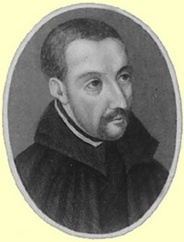 One of my favorite 16th century recusant poets is Saint Robert Southwell, an English Jesuit who preached the gospel in very trying circumstances. Southwell chose the obedience to be a Catholic priest in a country that outright persecuted Catholics and their priests. Ordained a Jesuit priest in 1584, his personal, theological and ministerial imagination, his human and divine calling, was to respond positively to a letter of the Superior General of the Society of Jesus of February 20, 1585 looking for missionaries to England. Southwell knew that his positive response to his religious superior would very likely end in martyrdom. Saint Robert Southwell’s poetry is challenging for the 21st century ear but worth the work of coming to understand his art and message. One such poem is “New Heaven, New War” expressing the Mystery of the Incarnation of God in history, the birth of Jesus.
One of my favorite 16th century recusant poets is Saint Robert Southwell, an English Jesuit who preached the gospel in very trying circumstances. Southwell chose the obedience to be a Catholic priest in a country that outright persecuted Catholics and their priests. Ordained a Jesuit priest in 1584, his personal, theological and ministerial imagination, his human and divine calling, was to respond positively to a letter of the Superior General of the Society of Jesus of February 20, 1585 looking for missionaries to England. Southwell knew that his positive response to his religious superior would very likely end in martyrdom. Saint Robert Southwell’s poetry is challenging for the 21st century ear but worth the work of coming to understand his art and message. One such poem is “New Heaven, New War” expressing the Mystery of the Incarnation of God in history, the birth of Jesus.
Cardinal Burke celebrates Mass for the Franciscans of the Immaculate, Rome
Thanks to JP Sonnen for this picture of His Eminence, Raymond Leo Cardinal Burke, JCD, following his singing the Pontifical Mass at the Church of St. Mary of Nazareth on Via di Boccea, Rome. The parish, staffed by the Franciscans of the Immaculate, is located west of Vatican City State in the Diocese of Porto-Sant Rufina, the historic suburbicarian diocese
Beautiful Liturgy is hard work, Monsignor Guido Marini reminds
The worship of the Triune God is our single most important work. No other work of the faithful, laity and clergy alike, is equal to praise of God through the sacred Liturgy and personal prayer. Jason Horowitz of The Washington Post published an article on December 25, 2010, “Pope’s master of liturgy helps Benedict restore traditions.” Very interesting indeed. I, for one, am very grateful to Monsignor Guido Marini for the hard work he’s done in helping the Church pray more authentically, particularly at the Liturgy celebrated by the Supreme Pontiff. A native of Genoa, born in 1965, Monsignor Marini is the Master of Pontifical Liturgical Celebrations, a position he’s had since October 1, 2007. In a previous incarnation Marini served Cardinal Dionigi Tettamanzi (now archbishop of Milan) and Cardinal Tarcisio Bertone, SDB, (now Secretary of State), both former archbishops of Genoa. He earned a doctorate in the psychology of communication and also holds the duel doctorate in canon and civil law.
In Rome on
a rainy Christmas Eve, Pope Benedict XVI followed a procession of Swiss guards,
bishops and priests down the central nave of St. Peter’s Basilica to celebrate
midnight Mass before dignitaries and a global television audience.
And
Monsignor Guido Marini, as always, followed the pope.
A tall,
reed-thin cleric with a receding hairline and wire-framed glasses, Marini, 45,
perched behind the pope’s left shoulder, bowed with him at the altar and
adjusted the pontiff’s lush robes. As Master of Pontifical Liturgical
Celebrations, he shadows the pope’s every move and makes sure that every
candle, Gregorian chant and gilded vestment is exactly as he, the pope and God
intended it to be.
Continue reading Beautiful Liturgy is hard work, Monsignor Guido Marini reminds
Cardinal Cañizares Llovera: Creativity in Mass has no place
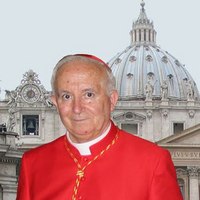
Andrea Tornielli published an interview with Antonio
Cardinal Cañizares Llovera, 65, from Spain, Prefect of the Congregation for
Divine Worship in Il Giornale, “Basta con la messa creativa, in chiesa
silenzio e preghiera” [“Enough with the Creative Mass, in Church
Silence and Prayer”].
Italian here. Shawn Tribe at the New Liturgical
Movement blog has posted a translation of just a few paragraphs with
the hope of posting a translation of the full interview in due time.
has provided what is likely the central point of the interview:
liturgy in the world?
view of some confusion, impoverishment, and banality in singing and in sacred
music, one can say that there is a certain crisis. For this reason a new
liturgical movement is urgent. Benedict XVI, pointing to the example of
St. Francis of Assisi, very devoted to the Most Holy Sacrament, explained that
the true reformed is someone who obey the Faith: he doesn’t act in an arbitrary
way and doesn’t claim for himself discretion over the rite. He is not the
master but the custodian of the treasure instituted by the Lord and entrusted
to us. The Pope asks, therefore, from our Congregation to promote a
renewal in conformity with Vatican II in harmony with the liturgical tradition
of the Church, without forgetting the Conciliare norm that orders not to
introduce innovations when the true and verified need of the Church requires
them, with the caution that new forms, in every case, must flow organically
from those already in existence.”
